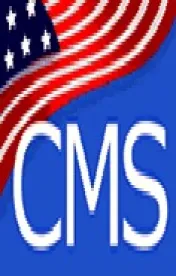For admissions on and after July 1, 2014, CMS will require hospices to file detailed reports for every patient served including every type of personal information (social security number, full name, Medicare HICN, DNR detail, and details about the terminal illness and treatment). While there are many aspects of this reporting requirement that have drawn criticism, one requirement constitutes a significant and unjustified invasion of privacy: Reporting requirements extend to every patient, without regard to whether they are Medicare beneficiaries.
By imposing the requirement to file extensive reports on each patient, CMS imposes real burdens on providers, effectively reducing funds available for patient care and redirecting them toward paperwork. Under Paperwork Reduction Act requirements, CMS estimates that it will only take 19 minutes to input and upload the data to CMS per patient; this of course is a ridiculously low estimate. Compare MedPAC 2014 Report to Congress, p. 316 (assuming higher cost growth for hospice given increasing administrative burdens including hospice item set).
Do hospices face risk in disclosing non-Medicare beneficiary information to the Federal government? Perhaps. Under both state and Federal law, individuals have a right to privacy of their personal information. When providers or other businesses infringe privacy rights, whether intentionally or accidentally (think Target), the government, press, and private individuals rightly object. But when the government overreaches, who polices them?
HIPAA requires providers to take reasonable steps to safeguard against “unauthorized uses or disclosures of the information.” 42 U.S.C. § 1230d-2(d)(2). Under HIPAA regulations, a provider may only disclose protected health information if “required by law” or necessary for “health oversight activities.” Someone who improperly discloses or obtains identifiable health information of an individual (such as that required to be disclosed in the HIS), can be punished by fines and imprisonment. 42 U.S.C. § 1230d-6(a). HIPAA also ensures that any more protective state privacy laws are not overruled, either by HIPAA itself or any CMS regulations. 42 U.S.C. § 1230d-27(a)(2); 42 U.S.C. § 1320d-2, Note.
Various state laws provide express protection as well. For example, in California, the Confidentiality of Medical Information Act protects an individual’s health information from unauthorized disclosure to third parties. Cal. Civ. Code §§ 56-56.37. A provider may only disclose health records where “specifically required by law.” Cal. Civ. Code § 56.10(b)(9).
Unfortunately, because the government enjoys qualified immunity for its actions, only the hospices themselves may face privacy lawsuits. Will CMS intervene and indemnify hospices in these lawsuits? Don’t count on it.
In the 2009 Health Reform law (PPACA), among thousands of other provisions, Congress authorized CMS to collect data about hospice quality. 42 U.S.C. § 1395f(i)(5). But, the authorization does not expressly allow CMS to collect data about non-Medicare patients. There is no evidence that Congress understood this authorization would be used by CMS to dictate reporting of personal health information for non-Medicare beneficiaries.
When CMS first required hospice quality reporting, it did not extend reporting requirements to non-Medicare patients. 76 F.R. 47302 (2011). But, beginning in 2012, CMS began to hint that it desired “comprehensive” records of hospice service, covering “each patient.” 77 F.R. 41548 (7/13/2012). In this 2012 publication, CMS did not propose any new regulation or even policy.
In May 2013, CMS proposed that the “hospice item set” be required to be filed for “each patient admitted to hospice on or after July 1, 2014, regardless of payer.” 78 F.R. 27823, 27836 (emphasis added). Although this represents a new invasion of privacy of non-Medicare patients, CMS did not propose to codify this by formal regulation. In July 2013, CMS “finalized” this new requirement, again failing to propose or adopt any regulation to this effect. CMS lawyers know that their own program manuals, including the new HIS manual, are not binding law. Christensen, et al. v. Harris County, et al., 529 U.S. 576, 587 (2000) (agency manuals “lack the force of law”).
So, CMS instructs hospices to invade the privacy of non-Medicare patients but CMS will not put the requirement into the regulations. If hospices fail to report such information on even non-Medicare beneficiaries, CMS plans to dock hospices by two percent of all FY 2015 Medicare reimbursement. 42 C.F.R. § 1395f(i)(5) (authorizing reduced reimbursement).
This new reporting requirement represents significant abuse of the rulemaking process. If CMS is going to invade the privacy of non-Medicare patients, it should follow standard rulemaking procedures and accept and respond to comments on this specific practice.
In April 2014, CMS issued some FAQs related to the hospice item set. Question 4 asked whether privacy laws, including HIPAA, affect the ability of hospices to disclose personal health information on non-Medicare patients. CMS responded stating that:
"By virtue of the regulation text, the described data disclosure is required by law, and therefore permitted under the HIPAA Privacy Rule.”
This statement by CMS is false in that the required disclosure of non-Medicare patient information is not required by any law at all – not by PPACA or any other statute from Congress and not even by any CMS regulation. CMS’ requirement is grounded only in a manual provision discussed obliquely in the Federal Register publications in 2013. CMS has never addressed the effect of state law protections for such information.
This initial foray by CMS into required submission of data by health care providers on non-Medicare patients could reflect a new intent by CMS to gather medical information on all Americans with regard to any medical condition.
If CMS can require Medicare hospice providers to provide information on all hospice patients, what would prevent CMS from requiring all other health care providers who care for Medicare beneficiaries to provide data on all of their patients?
If Congress intends to allow such an invasion of privacy, it should do so expressly and not allow its agencies to act in this indirect manner.
We can then decide through elections if this is the government we want.
So what should hospices facing this predicament do?
There are some options, none very attractive:
To mitigate this risk, hospices may want to consider giving patients express written notice of the required disclosure.
Here is an example:
Please take notice that the Centers for Medicare and Medicaid Services (CMS) has imposed a requirement that within 14 days of admission, hospices must report detailed personal information for every hospice patient to CMS including name, social security number, HICN (if available), diagnosis, medications, DNR wishes, and treatment plan. Upon discharge, hospices must file a discharge report. CMS asserts that it will use this information to assess the quality of hospice care, though patients and their representatives are not invited to submit information. This hospice reporting requirement is mandatory. Per CMS, any hospice that fails to comply faces an automatic reduction in all Medicare payments in addition to potential further sanctions up to and potentially including termination of Medicare license status.
If you wish to object to this reporting requirement, please contact CMS or your Congressional representatives as identified below:
CMS
Call them at:
(410) 786-9994
or write to them at:
CMS–1449–P, P.O. Box 8010
Baltimore, MD 21244–8010LIST SENATORS AND CONGRESSMEN
Another alternative is for hospices to file suit seeking to enjoin this requirement. Such a suit would have merit, but could get bogged down in the DC Federal court.
Another alternative is for hospices to refuse to comply as to non-Medicare beneficiaries. If and when CMS attempts to punish a hospice for not complying by reducing compensation, hospices could challenge the reduction in court, as the requirement to report personal health information for non-Medicare beneficiaries is not based upon any statute or regulation.
Rather than force hospices into this untenable predicament, CMS should reconsider this requirement immediately.



 />i
/>i
